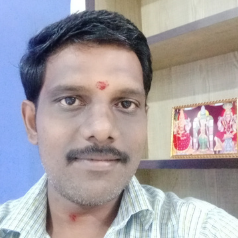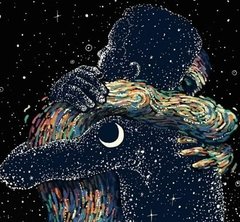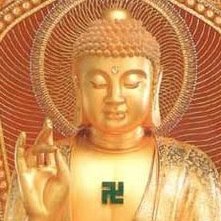Search the Community
Showing results for tags 'christianity'.
Found 14 results
-
Universal Messiah Hulagu Khan. The Tibetan schools of Sakya and Kagyu waged a muted, muffled political/religious war behind the scenes, in the shadows of the political vagaries of the Mongol onslaught upon the world. The Kagyu Drikung were caught in the midst of it all for the reason that the Drikung are the same school followed by the Mongol king Hulagu Khan, in the Middle East (and Hulagu wanted to remain faithful to his Drikung creed through thick and thin, but that was not to turn out exactly as he thought.) This is the hair-raising story of the Messiah, the triumphant king Hulagu, the lord of this world. about me: I'm Geir Smith, an American-Norwegian, a scion of the famous families of Norway, (that represent a profile of Modern Norway's builders). A second cousin to Pontine Paus, I'm related to Tolstoy, Ibsen, Wedel-Jarlsberg, Cappelen (great-great-grandmother Inga Sophie Cappelen), Løvenskiold, Munch etc... great-great-grandfather was Thomas Von Westen Engelhart who was Norwegian Minister of the Interior and State Counsel in Stockholm for several years. I'm an original trailblazer and visionary who's family tradition it is to continually forsee the trend and "anticipate the pattern". I am now announcing some hair-raising news. Coming from someone else, it would be totally incredible. But as I come from a very conservative family like mine but who are also innovative builders of the modern society, what I say resonates. I have mastered the Tibetan language through five years of university and thus can speak about the Tibetan Kalachakra and it's mention of Shambhala. I'm also bringing some astounding information too: the Illinois lottery drew #666, the same day as Obama's acceptance speech in Chicago. Being a scion of the famous families of Norway, I'm a ground-breaking force of intellectual prediction, on par with another relative of mine, Thor Heyerdahl, (who re-discovered Tahiti's discovery by the sea), for my part, I project myself instead into Asia and the world." My great-aunt Else Heyerdahl Werring, was the Royal Mistress of the Robes of the Norwegian Royal Palace, and her husband Nils Werring, my great-uncle was on the Steering Committee of the Bilderberg Group in the 50s. .... Hulagu Khan's brother Kublai Khan came to power in China and Hulagu then came under the influence of the Tibetan school which Kublai followed which was Sakya. Conflict erupted between Sakya and Drikung inside Tibet (between the followers of Hulagu and Kublai). Today China's under the Sakya rule, and the followers of Drikung and Hulagu have been absorbed into the empire of the Middle East, where there's a mix of Christians and Muslims that have drowned out the Buddhists of the founder Hulagu''s time. Buddhism's Apocalypse prophecy is in the Kalachakra text that's being propagated worldwide by the Tibetan lamas. And in that prophecy, is the mention of a mythical hidden land called Shambhala (which is situated to the West of Tibet i.e. exactly where Hulagu Khan's Middle Eastern Empire is.). So let's roll this back and sum it up quickly: there's a Buddhist Empire left behind in Tibet by Kublai Khan extending into China, but his brother Hulagu had his own private empire extending from Pakistan/Afghanistan and the Tibetan border areas, all the way to Baghdad/middle of Turkey, Konya etc...and Hulagu's empire was Drikung Kagyu. And bingo! Hulagu's empire of "Hulagid" Ilkhanids aka "The Ilkhanate" fits the description of Shambhala and the Savior of the world known as the King of Shambhala. It's fitting that Hulagu ruled over a puzzle of faiths, including Christians, Jews, Muslims and Hulagu's own Buddhists. He was thus the savior and god-like figure for all those assembled faiths. It's noteworthy that Hulagu's empire outlasted him by far, with an offspring of successors-descendants of his family lineage that lasted for 80 long years. We're thus in presence of the messianic King of Shambhala of the Kalchakra prophecy. What's remarkable is that he's Drikung Kagyu. Drikung was totally taken over by Sakya during their war, but 200 years after Hulagu's death, a Sakya lama (Kunga Zangpo) arose, who split from Sakya because he was independent and wanted to return to a stricter path than Sakya's own path. So, he totally revamped Sakya and asserted his school of Ngor as the primary force inside Sakya by far, as he actually dwarfed Sakya by his work. Then a split occurred because part of Sakya left it to found a new school the Gelugpas, and Kunga Zangpo couldn't agree with them because they adopted a way of practicing that excluded Tantrism until the latter part of the practice when the practitioners were already too old to do meditation, which "Ngorchen" Kunga Zangpo couldn't accept. He thus retreated to his monastery at Ngor and decided to carve out a niche region for his school far from the "roar and heat" of Tibetan politics. Pondering his isolation faced with this opposition that was rising against him, he sought to find a path outside of Tibet, (because neighboring tracts beyond the borders offered Buddhist regions, as well). That's when he traveled to and developed Buddhism in an abandoned stretch of land to the West of Ngor called Ngari which happened to be a traditional land of the Drikung Kagyus who had temples surrounding the Kailash sacred mountain and extending also to Ladakh. And this stretch of land was a dependency of Hulagu Khan's Empire (meaning: Hulagu raised taxes there). So when the Kalachakra speaks about Shambhala it's a mythical faraway land hidden from the view. But suddenly it comes into sharp focus at very close quarters, because the Ngari region is inside Tibet itself, but relies upon the empire of Hulagu who's headquarters are in Iranian Azerbaijan. Suddenly this monstrously extensive, megalithic empire rises out of the past and crushes everything on it's path. By Ngorchen Kunga Zangpo's strenuous efforts, the Ngari region became completely Ngorpa, of the Sakya school, but it's noteworthy to see that it was a traditionally Drikungpa land and one belonging to the Mongol Hulagu. Now nothing happens by chance, and it's good to note that the Kalachakra itself was written by a Sakya lama called Buton Rinchen Drub , just eighty years after Hulagu's death and was certainly a hidden hommage to Hulagu's protective action towards Tibet and Buddhism versus the devastations wreaked by Islam at that time. Therefore, Kunga Zangpo's decision to take over the Hulagu-Drikung part of Tibet called Ngari came once the Kalachakra had become vastly widespread in Tibet and thus Kunga Zangpo was taking an early investment into the Hulagu Empire which the Kalachakra prophecy announces. Kunga Zangpo was thus buying himself part of the dream and prophecy of the end of the world and inserting himself into the past as the rightful heir of the Kalachakra. In such, I think that the successions of reincarnations of Kings of Shambhala, (which was a lineage certainly written by the Sakya lama Buton), are made up of the Sakya school's founder Birwapa, followed by Hulagu (a combined Drikung/Sakya), then Buton Rinchen Drub and finally Ngorchen Kunga Zangpo (among the list of Kings of Shambhala). I see them all as clearly actors in the "Shambhala Saga" and having the status of "Kings of Shambhala". It's good to have proof of things, that's incontrovertible and proof that cannot be denied. I searched for Shambhala on Google and found the land of Bilad-al-Sham, corresponding to The Levant (Israel, Lebanon and Irak/Iran). Then I searched for people called Shambhala. I found two contemporaries of Hulagu which was troubling because I thought they could be allusions to Hulagu. Because indeed, "otherwise why should such people live exactly at the same places (Hulagu's capital was Maragha in Iranian Azerbaijan) and same time as Hulagu?" That's the rhetorical question, which any sleuth like me, researching history, should obviously want to ask themselves. Those two people were respectively called "Shams-e Tabrizi" and "Shams al-Din". They're Muslim luminaries and are rivaling candidates to be the Messiah respectively of the brotherly enemies: Sunnites and Shiites. Seeing the Mongols prospered for eighty years and converted to Islam during forty of those years, it's impossible to not think that Hulagu's heritage was progressively merged into the Muslim heritage. So concretely how did they merge a Buddhist king like Hulagu into Islam via these two "Shams" figures? The answer is perfectly self-evident: The Drikung Hulagu messianic founder of the Ilkhanate dynasty was the future Messiah of the Islamic Sunnites, but also the Shiites. His successors at the helm of the Ilkhanate couldn't let anyone take the role of Messiah from them. Therefore they jealously attributed the top religious role(s) to themselves by using their founder and grandfather Hulagu as their champion and "chosen one". But secretly, Hulagu was and remained Buddhist in their tradition. And in Tibet, many regions remained Drikungpa. Hulagu could thus be named openly as the Messiah in the Drikung regions and temples of Tibet. But that would not have been plausible at all, for one good reason which was that in Tibet also, Hulagu's role as BUDDHIST Messiah was hidden because Kublai's operatives were on guard there. No Mongol such as Kublai would have been ready to grant to his brother Hulagu the role of Messiah and world Savior. That goes against the Mongol grain of one-upmanship among Genghis Khan's offspring's siblings. But over the years, the Sakya realized that they had inherited this surprising, extraordinary and wonder-filled, miraculous war treasure, which was this messianic king Hulagu and they didn't want to let go of it. Thus, the rewriting of the secretive biography of Hulagu in the Kalachakra, left open the possibility for a future resurrection and returning to rule, of that historical hair-raising figure of Hulagu Khan, the Messiah (of all faiths... even sunni muslims, shiites... and jews...and christians of course. Hulagu's quoted in his writings, saying he loved christians. Christians had brought him up. His wife and mother were extremely fervent christians and he had saved the christians in Baghdad when he razed that in the greatest massacre of the whole History of Humanity. The christians in the East had hailed him as the messianic Savior of Christianity: the Messiah). I think I've summed up all the aspects of this multi-faceted Messianic leader, who left his mark upon... and molded all the modern faiths of today, be they Islam, Christianity, Buddhism or Judaism, exactly to his behest and so as for them to come under his boot, his total, rigid and absolute control. Nobody controlled the whole world like the Mongols did, they who are the sole world government that the world has ever seen nor will ever see again in all Eternity. No one put the world under their total and blind control, other than the Mongols/both in politics, war and faith and religion. They totally controlled and submitted the world both physically and in faith, declaring themselves as sole Savior, Lord and God among men for each and every faith inside their domain. (Hulagu's domain was immense, reaching from Turkey's Konya region, to Baghdad, to Afghanistan and as far as Ngari in Western Tibet, meaning a land of a total length of approx. 4500 km, an astounding empire of unheard-of expanse, rivaled only by his Mongol brothers' empires in Russia on one hand and in China on the other.)
-
I thought this was an outstanding talk that combines the insights of Vedanta with the Christianity. We have a Christian who converted to Vedanta, and rather than losing his Christianity found it very much enhanced. It is also very practical, very loving, and spoken well from the heart. He also raises interesting questions about dual-belonging: can one be a member of two religions? His answer may surprise you (especially since it come in the second lecture ).
- 43 replies
-
- 1
-

-
- christianity
- vedanta
-
(and 1 more)
Tagged with:
-
☮️
-
- christianity
- bible
-
(and 1 more)
Tagged with:
-

My Book on the essence of three major religions - Get it for free
Shanmugam posted a topic in General Discussion
I just published my new book yesterday, September 11, 2019. The name of the book is ‘Discovering God: Bridging Christianity, Hinduism and Islam’. It is available in both kindle and paperback. Kindle version is live but the paperback version is still under review. I will add the link to it once it is ready. This book is a step towards bridging all religions. Out of 100 readers, I am sure that it will make a difference to at least 10 people. This book explains the central nerve, the essence of all religions. I have written this book hoping that it will contribute something towards religious tolerance, unity of mankind and the ability to really see that all religions lead to the same truth. I am a running a free promotion for the book from Thursday, September 12, 2019, 12:00 AM PDT to Friday, September 13, 2019, 11:59 PM PDT. During this time, you can download the book for free. You don’t have to have a kindle. You can download kindle app for android, create a free amazon account if you don’t have one, login and download the book for free during the period of promotion. Please leave your reviews after you read the book, to let the world know about this book. This book was possible only by Grace. Here is the book description as it is given in Amazon: ” God is the most misused and misunderstood word in the world. There are thousands and thousands of religions in this world but the major religions that stand out in the list include Hinduism, Islam and Christianity. Do they have anything in common or they are completely different from each other? In this book, I will show you how all the major religions of the world have the same central core and point to the same truth. I have quoted numerous verses from the Bible, Bhagavad Gita and Quran and have given a detailed commentary on them in the process of explaining the truth about these religions. I have unraveled the secrets of Greek mystery schools, Upanishads, Kabbalah, Hasidism, Sufism and other mystic traditions in the book. But this book needs a complete open-mindedness and patience from your part. By buying this book and sharing it with your friends, you are contributing something to the world peace. I strongly believe that this book will bring a change. “ US readers, click here to get the book: https://www.amazon.com/dp/B07XRJ3GWS Indian readers, click here: https://www.amazon.in/dp/B07XRJ3GWS -
A Christian Daoist asks indulgence for intruding. I have been a follower of the Christ for over 40 years; I never realized how closely the TaoTeChing walks with my traditional beliefs. I must confess right from the start that the reason I have moved from an evangelical point of view to something more flexible. For that reason, I can't subscribe to the idea of Taoist "scripture". Since noone that I've read has been adamant enough to insist that Lao Tzu was under verbal plenary inspiration, I regard the TaoTeChing as a guide, rather than a series of commandments, no matter how subtle those commandments appear (e.g., stanza 27, my own personal favorite).
- 5 replies
-
- 4
-

-
- christianity
- taoism
-
(and 1 more)
Tagged with:
-

(Drugs & love) - heart burns and been poisoned by too much spirituality to save it
profounded posted a topic in General Discussion
Its the 4th of september and about 5 or 6 months ago I fell in love with a married woman with an extensive history of prostitution as well as an extensive substance abuse problem.. Well, I decided to take on (or fell into) the relationship with the idea that entering the world of polyamory would make this work. I had an idea of the problems that were going to arise but didn't truly grasp the agony of them until the relationship progressed. She is intelligent and beautiful as fuck. She is primitive in nature and in that primitivity is a beauty I have not found in the civilized world, and she is also polyamorous by nature whether she admits it to herself or not. Does she not love both myself and her husband? Is she not around men all the time (::gags in anxiety:: )? Maybe two days ago she resumed her adventures with crack, as well as drinking and smoking weed. It rips me apart because I don't see this stopping any time soon despite her telling me otherwise, and as a sober spiritual individual, I deal with the hurt in my heart seeing her destroy herself, which touches on my own insecurities as an individual which has to do with how I focused my last 8 years as a computer programmer because of the money instead of letting myself blossom as an individual, as well as the rational reality that she is going down a road that is full of suffering and possibly even death. Did she not jump out of a two story window not too long ago? Fuck.. So I got the jesus complex burned into my brain.. Taoism too has done its numbers on me and suffering for her in this agony for her health, to be one good influence in her life, seems to be in my path. Quotes like: "What is a good man but a bad man's teacher, and what is a bad man but a good man's job. Without knowing this, you will get lost." or "Greatest kind of love is where you give up your life for your friends" run through my head.. Wondering if there is a god or not runs through my head as well.. Why not leave selfishly for my own needs and leave this woman? Well that answer is simple: because I love the fuck out of her.. I'm addicted to the agony she puts me through and it truly is opening my mind to the harsh realities of life, as well as making polyamory a reality that cannot be ignored anymore... ahh.. I'm doing my best to give myself the space to process problems as they come, and I'm doing whatever I can to grow as an individual instead of chasing money, power, and prestige.. but I'm lost, and I guess this is a plea for encouragement.. I have nothing to grab onto anymore.. and no sense of certainty.. and this house cat is having a hard fucking time loving this street cat... what do i do? nonjudgmental, unconditional love seems all I can muster. I sometimes wonder if I am missing out by not experiencing drugs myself (I resort to a shit load of meditation which leaves me introverted and disconnected from others). I just read an article by OSHO talking about how drug users are using the drugs to deal with the society that conforms us to left brained systematic thinking instead of opening up the right hemisphere of creativity and such. I;m trying to do my best to see drugs in a positive light but truth is I avoid both drugs and alcohol because of the lack of sobriety that comes with them which I hold precedent in value.. I don't know.. I am also new to all these emotions and they are truly ripping me apart... If I had these emotions at age 20, hell I probably would have a drug problem myself.. but spirituality has grounded me at 30 and given me at least a good chance in dealing with this.. Just embrace and accept and love, right?- 21 replies
-
- taoism
- christianity
-
(and 3 more)
Tagged with:
-
I was raised Charismatic Lutheran. 10 commandments are fairly foundational to the paradigm. I bought all of it hook line and sinker, like I bought all things I was exposed to by the people I loved and trusted as a child. Until I reached the age of reason and read the bible cover to cover, twice. The contradictions and cognitive dissonance stacked into an un-ignorable heap until I found I had to move on. I was resentful and bitter toward the 'lies' I was fed for years and years. I am no longer bitter and have come full circle to revel in many of Christ's teachings. The Gnostics particularly resonate. But I had a moment I wanted to share, some time after I left the church, regarding the 10 commandments that was very powerful for me and helped me to release much of the pent up anger and resentment and it was a subtle change in perspective. The 10 commandments in my experience should be called the 10 path markers. They are not a list of 10 things you should never do, or you'll be punished for eternity, or punished at all perhaps... I don't know. They are a list of things that you would never do, were you to be walking the Path of love. They are a brief, incomplete list; clear road markers as to what path you are on. When I am keyed into divine love, it is not something outside of me. It emanates from my being. I can't call it God. I don't believe in that type of being. But I have definitely experienced divine love and that feeling is what the christians in my church called 'walking with god'. "He is so filled with love, he's really walking with God." As I said, I don't believe in God, but I experience a godly love in my Path in life. The tao of the ten commandments are really the 10 path markers that tell you whether you are on the path of divine love/tao/bliss/unity. When you are walking in love/unity/tao you simply will not be capable of killing, stealing, coveting... anything. It would be impossible to have any other gods above this, as this experience is transcendent even of the idea of a god. When man followed the Tao, no laws existed. sidenote: My mom got a call from my youth minister the night I asked him why 'Thou shalt not rape' was not a commandment. That one still bothers me.
-
Some would like to say that there is no connection between virtue and De (德, often translated as "inner power" or virtue) in the Dao De Jing, and that reading it as such is merely forcing a Christian or Confucian worldview on the text. Other's, such as myself, would like to show that De is very much connected to virtue in the Confucian sense, and even in the Christian sense of the word as "moral virtue," as it is both virtuous, the numinous embodiment of Virtue Itself, and humanity's corresponding quality in nature, of virtue. Perhaps there are also language barriers which lead to such confusion about the virtue (power) of using the word "virtue" to describe De, so below are some definitions (bold mine) of virtue to help show the applicability of the term to De. Please note that the word "virtue" in English also has the synonyms of "moral excellence," "efficacity," and "force or power," as the character 德 De has in Classical Chinese. 1. a. Moral excellence and righteousness; goodness. b. An example or kind of moral excellence: the virtue of patience. 2. Chastity, especially in a woman. 3. A particularly efficacious, good, or beneficial quality; advantage: a plan with the virtue of being practical. 4. Effective force or power: believed in the virtue of prayer. 5. virtues Christianity The fifth of the nine orders of angels in medieval angelology. 6. Obsolete Manly courage; valor. We can look at chapter 51 and see how De is a numinous power, yes, but is there no virtue in this power? Is the power not the macro version of virtue itself? And if one wishes to be in accord with this power, can they do so without "virtue" in the Confucian and/or Christian sense? Chapter 51 (Yutang trans.) Tao gives them birth, Teh (character) fosters them. The material world gives them form. The circumstances of the moment complete them. Therefore all things of the universe worship Tao and exalt Teh. Tao is worshipped and Teh is exalted Without anyone's order but is so of its own accord. Therefore Tao gives them birth, Teh fosters them, Makes them grow, develops them, Gives them a harbor, a place to dwell in peace, Feeds them and shelter them. It gives them birth and does not own them, Acts (helps) and does not appropriate them, Is superior, and does not control them. - This is the Mystic Virtue. So then we have the question, does the Dao De Jing completely separate the power of De and virtuous behaviour? Does one need to behave virtuously in order to have De? It would help to take a look at Chapters 10 and 28, the only Chapters where De appears in the first volume (ch. 1-37): Chapter Ten (Feng/English trans.) Carrying body and soul and embracing the one, Can you avoid separation? Attending fully and becoming supple, Can you be as a newborn babe? Washing and cleansing the primal vision, Can you be without stain? Loving all men and ruling the country, Can you be without cleverness? Opening and closing the gates of heaven, Can you play the role of woman? Understanding and being open to all things, Are you able to do nothing? Giving birth and nourishing, Bearing yet not possessing, Working yet not taking credit, Leading yet not dominating, This is the Primal Virtue. [last line, 是謂玄德, literally, "This is called profound/deep De"] Chapter 28 (Lin Yutang trans.) He who is aware of the Male But keeps to the Female Becomes the ravine of the world. Being the ravine of the world, He has the original character (teh) which is not cut up. And returns again to the (innocence of the) babe. He who is conscious of the white (bright) But keeps to the black (dark) Becomes the model for the world. Being the model for the world, He has the eternal power which never errs, And returns again to the Primordial Nothingness. He who is familiar with honor and glory But keeps to obscurity Becomes the valley of the world. Being the valley of the world, He has an eternal power which always suffices, And returns again to the natural integrity of uncarved wood. Break up this uncarved wood And it is shaped into vessel In the hands of the Sage They become the officials and magistrates. Therefore the great ruler does not cut up. Both of these chapters show that De is related to modesty, not being boastful, and similar qualities. This virtue of modesty and unselfishness is probably the most prevalent instruction throughout the Dao De Jing, and is at the base of virtuous behaviour/unselfish behaviour. As you can see in Chapter 28, this virtue leads to the inherent power of virtue: Virtue. It's also easy enough to see that Chapter 28 is repeating the same message three times using different poetically descriptive means: male vs. female; white vs. black = honour and glory vs. obscurity. Sure there are innumerable things to be learned via these verses, but they also show what sorts of "virtue" one requires to maintain or realize De. This sort of "virtue" is also very prevalent in Confucian teachings, as well as Christian teachings (not to mention every other wisdom teachings passed down by elders of true wisdom). We can see that this is also the same virtuous quality of Sages, in Chapter Seven: Chapter Seven (Yutang trans.) The universe is everlasting. The reason the universe is everlasting Is that it does not life for Self. Therefore it can long endure. Therefore the Sage puts himself last, And finds himself in the foremost place; Regards his body as accidental, And his body is thereby preserved. Is it not because he does not live for Self That his Self is realized? So this way of the universe and that allows it to be everlasting, is that it does not think of itself first. This is exactly the same quality that describes De. We can also see this quality in the teachings of water, as illustrated in Chapter Eight: Chapter Eight (Yutang trans.) The best of men is like water; Water benefits all things And does not compete with them. It dwells in (the lowly) places that all disdain - Wherein it comes near to the Tao. In his dwelling, (the Sage) loves the (lowly) earth; In his heart, he loves what is profound; In his relations with others, he loves kindness; In his words, he loves sincerity; In government, he loves peace; In business affairs, he loves ability; In his actions, he loves choosing the right time. It is because he does not contend That he is without reproach. So if we are to speak about De as the counterpart to Dao as it appears in Chapter 51, can we not reasonably state that this power is all or either a.) virtuous, b.) the ultimate power of Virtue Itself, or c.) the corresponding quality in nature to human virtue? Yes, De fosters creation, but is this fostering of creation not the same selfless propensity to serve others which Confucianism and Christianity would say makes a person virtuous? Does this not mean that De is very much the numinous embodiment of Virtue?
- 40 replies
-
- 1
-

-
- De
- dao de jing
-
(and 4 more)
Tagged with:
-
Considering how much abuse has gone on in the churches of the religion of Christianity, it makes the whole organized religion seem creepy to me, and like it is organized in order to control people and hide the truth from them. It's no wonder this ended up happening. Huge Sex Abuse Scandals in religions and churches http://www.npr.org/news/specials/priests/ SEX CRIMES AND VATICAN- http://vimeo.com/654677
- 9 replies
-
- Pope
- Christianity
-
(and 8 more)
Tagged with:
-
Here is a series I found about the Inquisition, and the files and historical accounts that have been opened in recent years Secret Files of the Inquisition part one 1 (Root Out Heretics) http://video.google.com/videoplay?docid=571538940742386630#docid=-4457635096048290491 Secret Files of the Inquisition part two 2 (The Tears Of Spain) http://video.google.com/videoplay?docid=571538940742386630#docid=-690966989349563518 Secret Files of the Inquisition part three 3 (The War Of Ideas) http://video.google.com/videoplay?docid=571538940742386630#docid=8555967476670491514 Secret Files of the Inquisition part four 4 (The End Of The Inquisition) http://video.google.com/videoplay?docid=571538940742386630#docid=-8751638125016757779
- 3 replies
-
- Inquisition
- Persecution
-
(and 8 more)
Tagged with:
-
Historical Documentaries about the powerful and evil Roman Emperor, the man known as Nero. Most Evil Men in History, Nero- Emperor Nero's Last Days- http://www.youtube.com/watch?v=IdM_72cnHKE http://www.youtube.com/watch?v=ce05dj7H3OU http://www.youtube.com/watch?v=aEK93Vni15c http://www.youtube.com/watch?v=Pu6oS9rBlwc http://www.youtube.com/watch?v=XvmrbdZ9cKA
-
Here is an interesting short film about Christianty, entitled "The God Awful Truth" The God Awful Truth http://video.google.com/videoplay?docid=7395603301662416443#
- 10 replies
-
- God
- persecution
-
(and 8 more)
Tagged with:
-
Misquoting Jesus Textual critics have proven many parts of the modern bible were not originally a part of it. One example is the story of the woman who was about to be stoned to death but Jesus saved her by saying "let he who is without sin cast the first stone." It's been proven that this was added in hundreds of years after the NT texts were first written down, and the original texts didn't have this story. Koester notes: Someone arguing that it was originally in there has to explain why it does not appear in the most early accounts--why would they all delete? Why would it appear in the wrong gospel? Bart Ehrman Interview on "Misquoting Jesus" http://www.thedailyshow.com/watch/tue-march-14-2006/bart-ehrman Bart Ehrman's 'Misquoting Jesus', with audio interview- Bart Ehrman's 'Misquoting Jesus' : NPR The book of Bart- The Book of Bart Historians don't consider the KJV to be historically as authentic or original as some other versions Most modern versions like the NASB, NIV, ESV (the 2001 English Standard Version) are based on the Westcott-Hort Greek text, which there are differences of some 5000 words and many whole verses from the New Testament Greek text that the King James Bible is derived from. The W-H text is based primarily on two manuscripts called Sinaiticus and Vaticanus. These two texts disagree significantly with each other, let alone with the vast majority of all other texts, in over 3000 places in the gospels alone, and over 1000 times in the rest of the New Testament. Yet they form the textual basis of most modern bible versions. Sinaiticus and Vaticanus were not found until after the KJV was already written, so they are older and more original. They are considered to be examples showing just how much a bible can change over time. The Masocretic texts that the modern bible is based on are obviously historically inferior to Sinaticus and Vatinicus which are far older. Here are 5, out of hundreds, of modern interpretations of scripture that can objectively be proven false- 1. The story of the woman who was to be stoned but was saved by Jesus, never happened and was not originally in the bible 2. The Trinity did not exist in the original texts 3. Nazareth didn't exist at the time of Jesus- Jesus the Nazarene means Jesus the Essene, not Jesus of Nazareth 4. Mary Magdalene being a prostitute rather than the head disciple of Jesus 5. The Resurrection as people today understand it was not in the oldest texts If you've played the "telephone game" as a kid where you whisper a phrase into someone's ear who then whispers it to the next kid and so on down a whole line up of kids. The phrase ends up something unrecognizable to the original. Now add that with whole texts that are supposed to come together as a complete story, different languages being translated, and different people doing different parts. I don't know that we can examine each change individually, but if you think about what the odds are....the odds are there are significant changes The bible of today is still a copy of a copy of a copy of a copy, and obscure teachings and often originally oral traditions
- 32 replies
-
- 1
-

-
- Bart Ehrman
- Textual Criticism
- (and 8 more)
-
Here is a documentary by the CBC exploring the similarities between Christianity, Pagan traditions, and the ancient Egyptian religion. Also explored is the theory that Christianity evolved out of the ancient Egyptian religion, and the controversial theory that Jesus did not actually exist. The Pagan Christ-
- 48 replies
-
- Pagan Christ
- Jesus
-
(and 8 more)
Tagged with:







